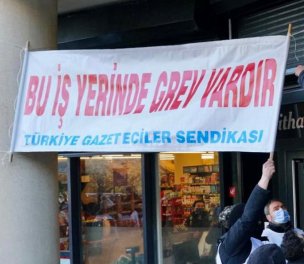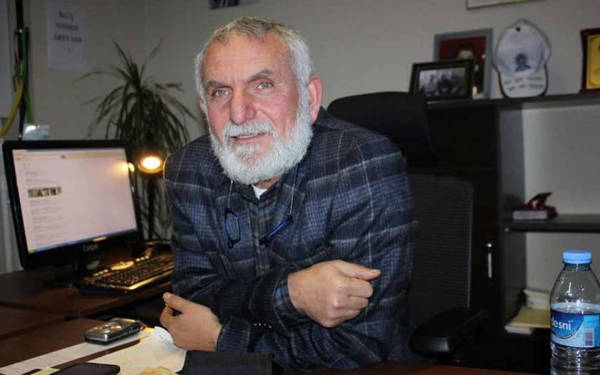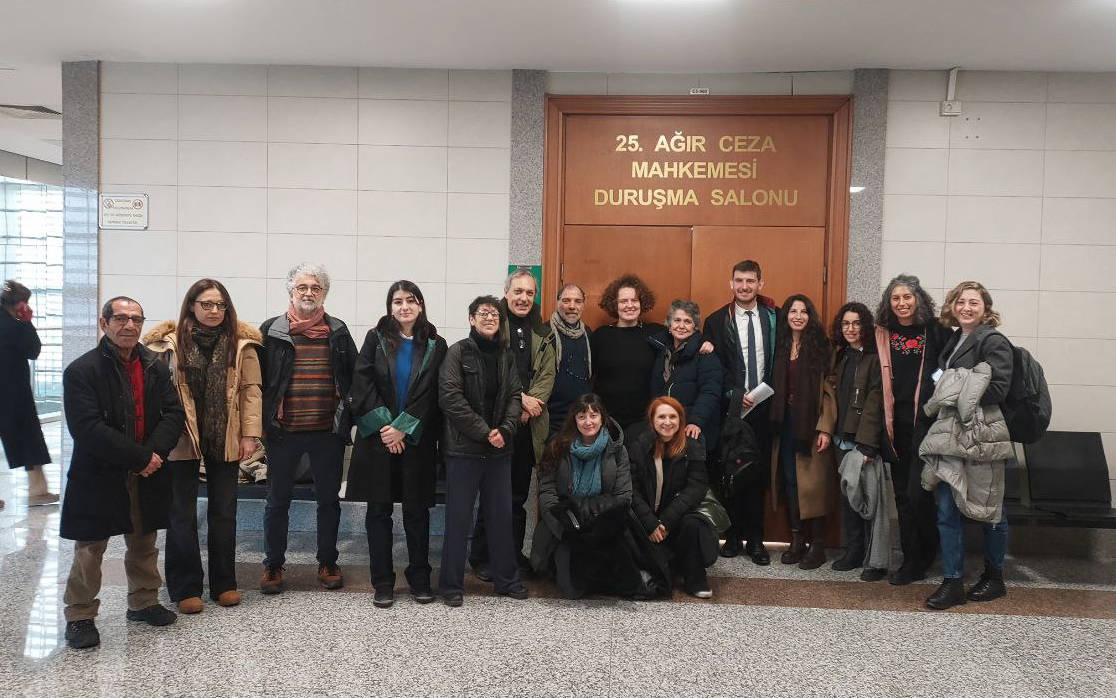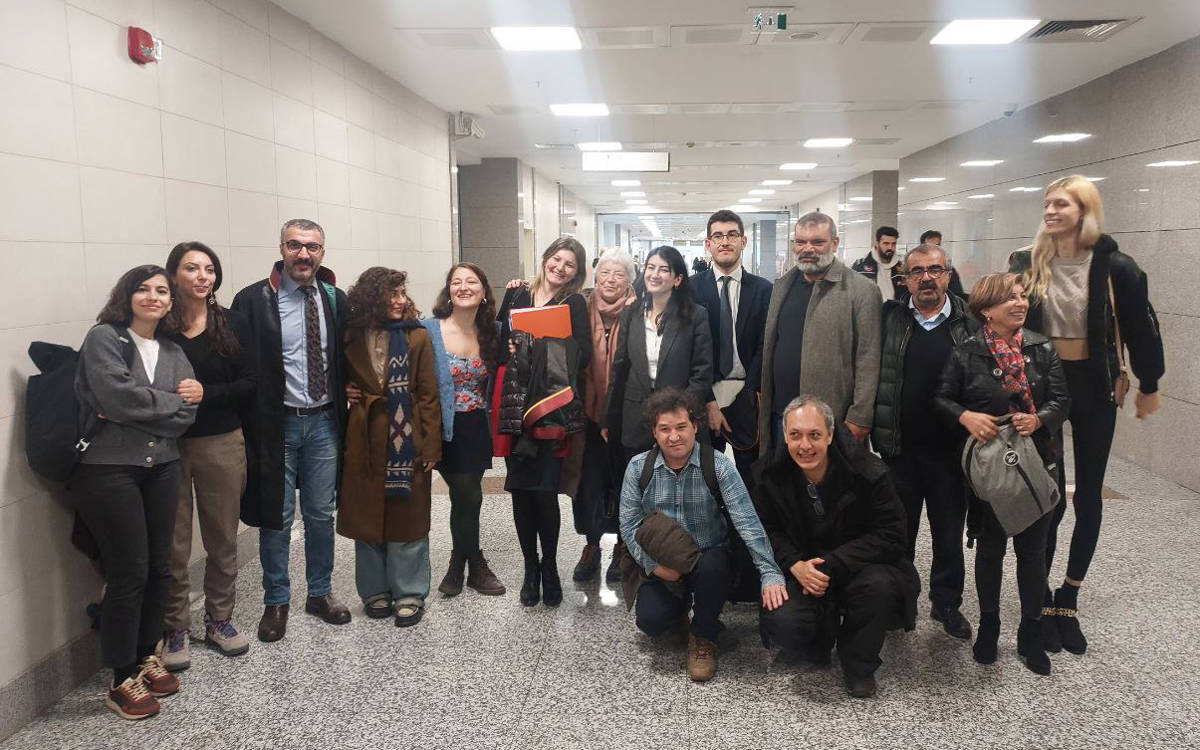Click to read the article in Turkish
For the first time in 13 years, journalists have gone on a strike in Turkey. And it is happening at a foreign outlet, BBC.
Today is the 13th day of the strike, with the attendance of 12 of the 13 journalists working for BBC's İstanbul office. The striking journalists are members of the Journalists' Union of Turkey (TGS).
We visited BBC employees on the 11th day. There was a resolute struggle in front of the office in Gümüşsuyu, Taksim, amid freezing cold and snow in İstanbul.
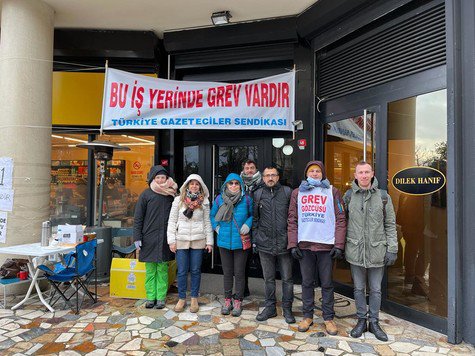
A banner that read "There is a strike at this workplace" was hung between the office building and a supermarket.
Not only journalists and citizens from Turkey but also journalists unions in the world and BBC employees in London support the strike.
"Declining living standards"
Their employment contracts forbid the striking journalists to speak to the media, but TGS Chair Gökhan Durmuş talked about the strike:
"In 2009, journalists working for the Sabah and ATV group went on a strike, it was the last one. There have been no strikes in Turkey after that. For this reason, the BBC strike is a first in Turkey. We can also say that it is the first strike of a foreign media outlet in Turkey.
"As a result of the absence of unions in the sector for years, such [strikes] didn't happen. We became a sector that bosses wanted to be. There was an order where they would increase wages as much as they wanted.
"However, journalists have an increasing tendency to organize in recent years. The BBC strike began with this process. The most basic reason for the strike is the declining living standards of journalists.
"The TGS has currently agreements with 11 businesses. We didn't go on a strike in these but many of them had come to that stage. But we couldn't find a [common] ground at BBC.
"The BBC employers acting as if there was no union, as if the employees are not a part of the bargaining brought us to this point. There was an attitude like, 'We are giving you this. You better accept it.'
"The process started in August. We began the strike officially on January 14. Until a week before the strike, the offer on the table was only 10 percent. In the meeting just before the strike, they increased it to 20 percent but this would not compensate for the years-long depreciation in the salaries of our colleagues at BBC.
"When BBC offered a 20 percent increase to journalists, the official inflation rate in Turkey was announced as 36 percent. In the last year, our colleagues received a 7 percent increase when the inflation rate was 14 percent.
"In other words, the salaries of our colleagues have lost more than 50 percent of their value against the inflation rate. We just want to make up for it."
BBC saved 50 percent from its budget
In recent years, low salaries have been imposed on journalists and the employer being a foreign outlet does not change anything, said Durmuş.
"BBC can very easily meet the legitimate demands of its employees here. These demands wouldn't put any financial burden on BBC.
"Because BBC makes its budget for [its services in different countries] in the UK pound, but pays our colleagues in the Turkish lira. In the last year alone, the pound gained more than 50 percent value against the lira. In other words, BBC spent less than half of the annual budget it made for [its office in Turkey].
"So, we are not making demands that will put an extra financial burden on BBC. We just want equal and fair treatment. We want the BBC to treat those in its Turkey office the same way it treats those in its London office."
They met with the employers on the first day of the strike, but their stance did not change, said Durmuş, adding that the strike will continue until the demands are met. (HA/VK)






_(1)as.jpg)
